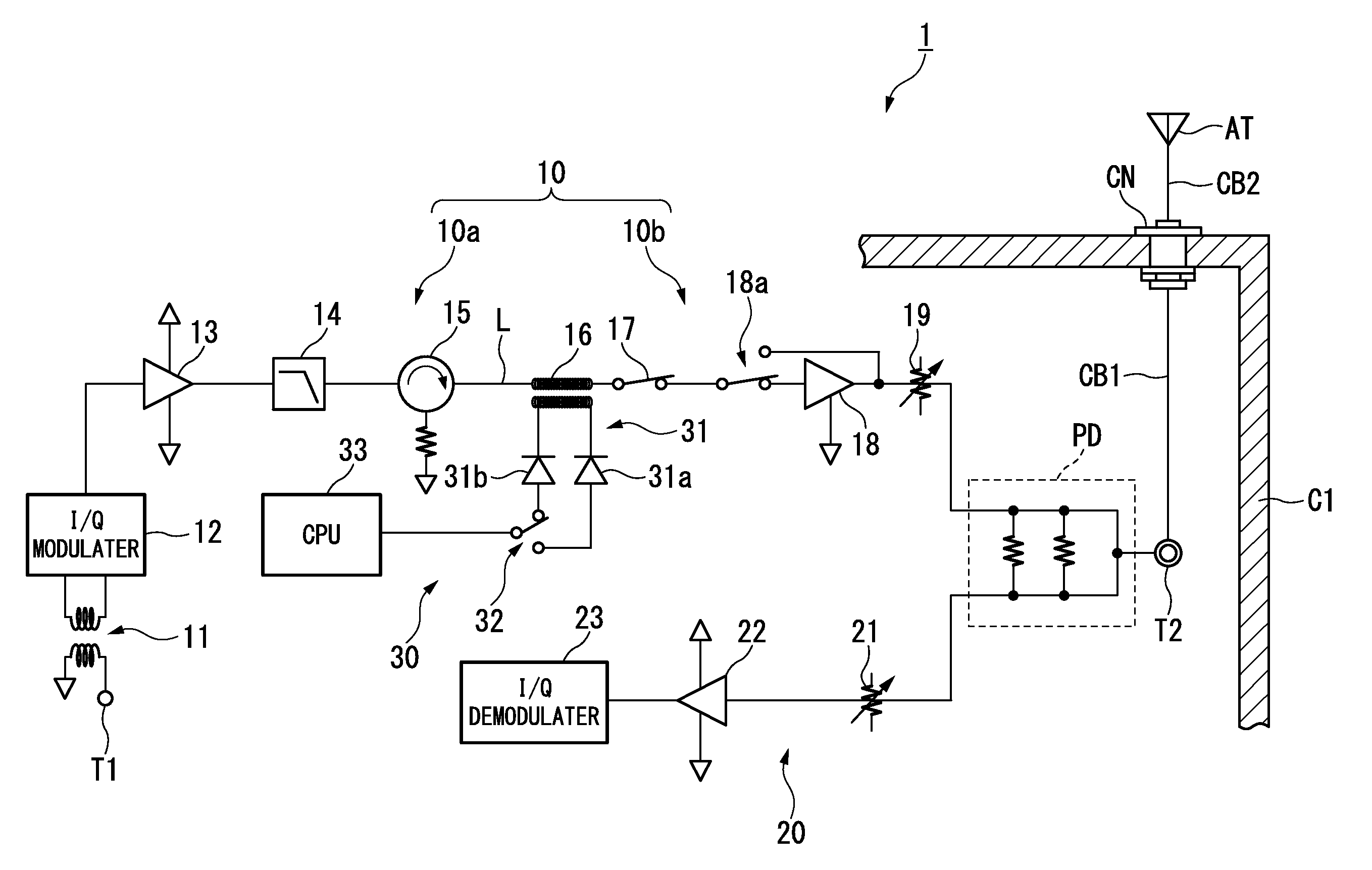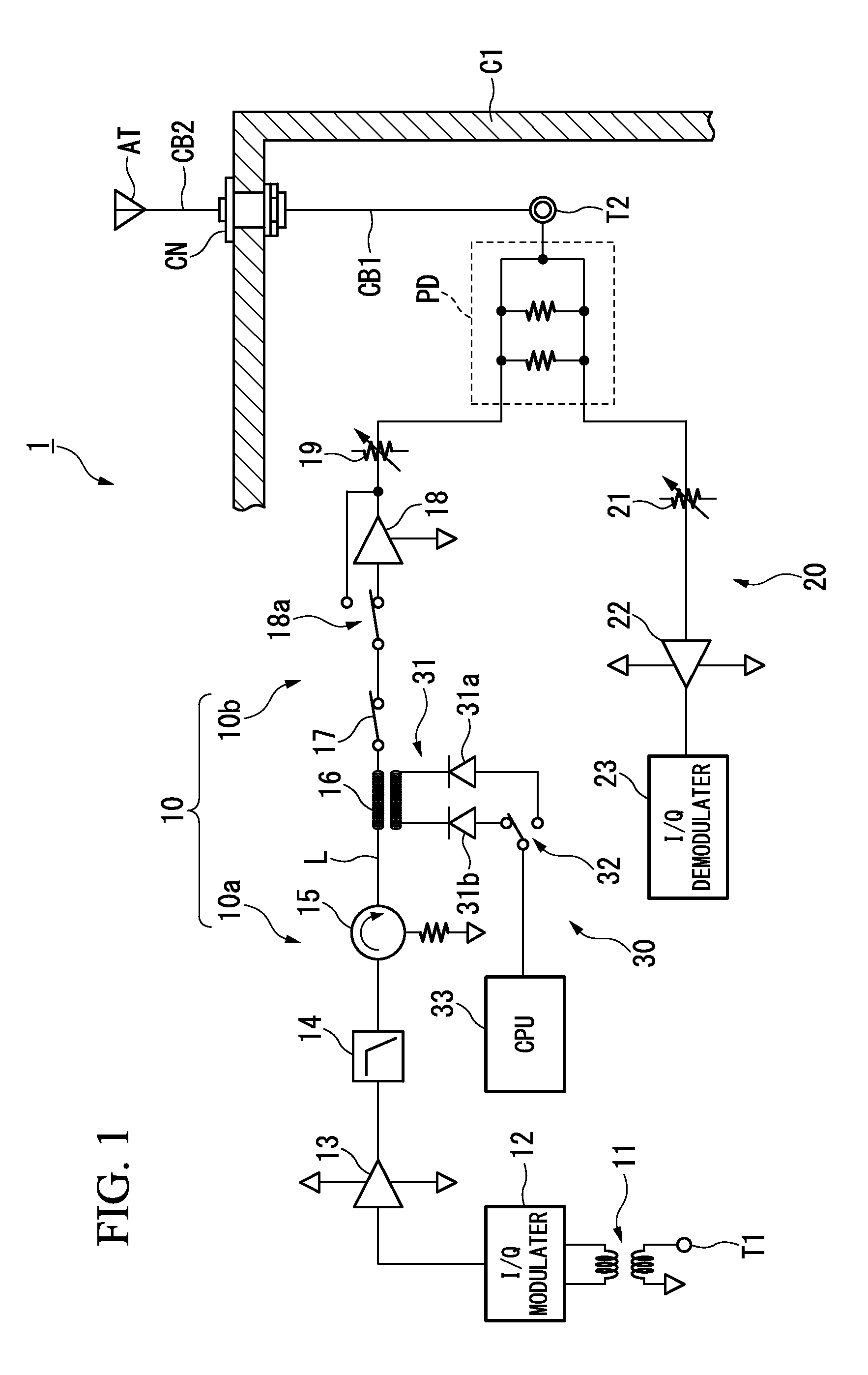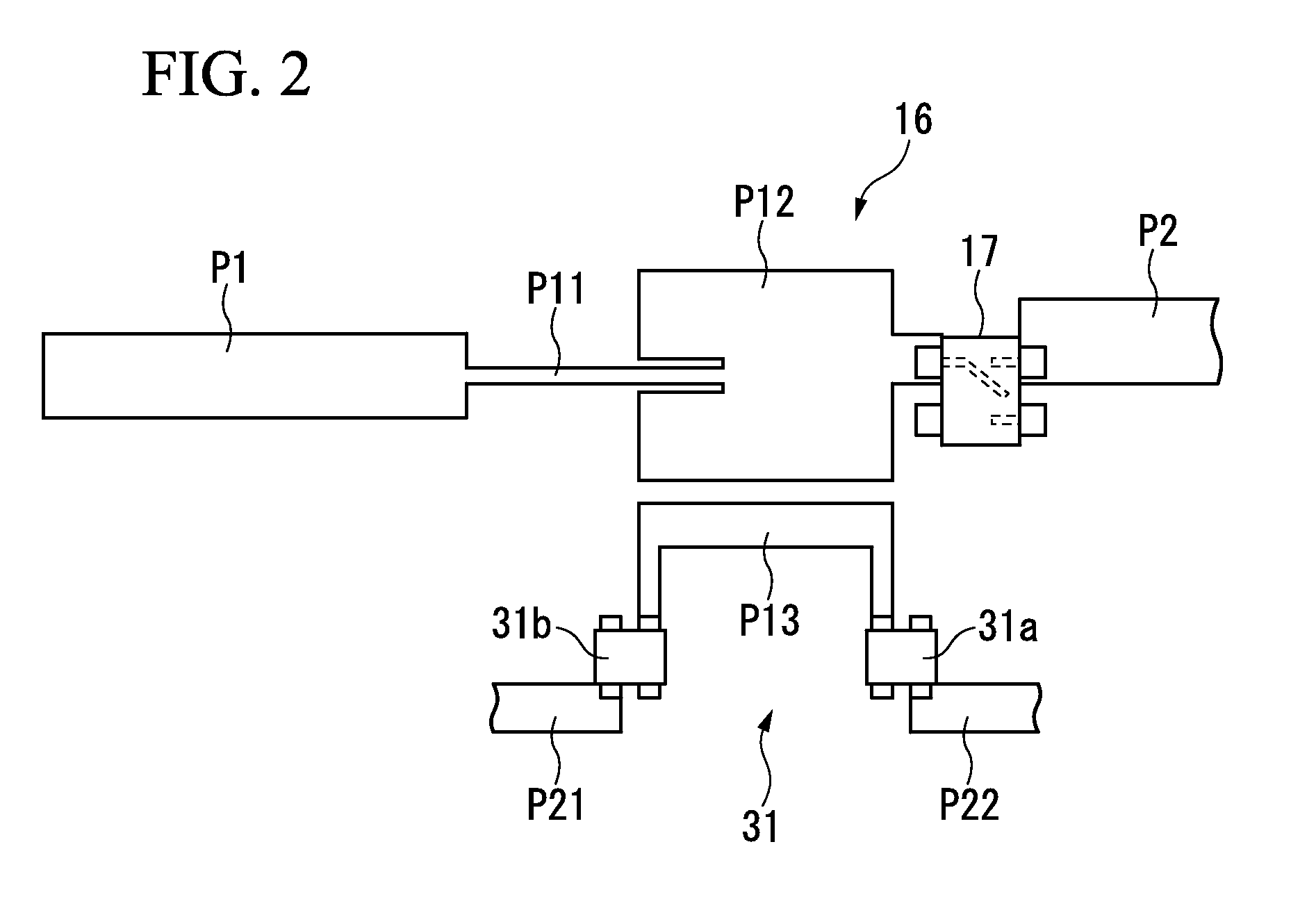Self-diagnosis circuit
a self-diagnosis circuit and circuit technology, applied in the direction of electrical equipment, transmitter monitoring, transmission monitoring, etc., can solve the problems of difficult to quickly discover that an abnormality has occurred, difficult to detect an abnormality in the follower stage, and it is not possible to know of the occurrence of an abnormality. , to achieve the effect of easy to know
- Summary
- Abstract
- Description
- Claims
- Application Information
AI Technical Summary
Benefits of technology
Problems solved by technology
Method used
Image
Examples
first embodiment
[0029]FIG. 1 is a block diagram showing the constitution of the main parts of a wireless communication apparatus having a self-diagnosis circuit according to the first embodiment of the present invention. As shown in FIG. 1, the wireless communication apparatus 1 of the present embodiment includes a transmitting circuit 10 (high-frequency circuit), a receiving circuit 20, a self-diagnosis circuit 30, a power divider PD, and an antenna AT (output part) and the like, wherein the signal (high-frequency signal) input from an input terminal T1 (input part) is transmitted as a wireless signal from the antenna AT, and receiving processing and the like is performed of a wireless signal received by the antenna AT.
[0030]The wireless communication apparatus 1 can diagnosis for an abnormality in the high-frequency circuit made of the transmitting circuit 10, the power divider PD, and the antenna AT and the like. If the diagnosis is that an abnormality exists, the wireless communication apparatu...
second embodiment
[0067]FIG. 3 is a block diagram showing the constitution of the main parts of a wireless communication apparatus having a self-diagnosis circuit according to the second embodiment of the present invention. In FIG. 3, blocks that are the same as those in FIG. 1 are assigned the same reference symbols. As shown in FIG. 3, a wireless communication apparatus 2 of the present embodiment has a detection element 24 (detection circuit) in the receiving circuit 20, and uses the result of the detection element 24 to detect the existence or non-existence of an abnormality in the circuit (high-frequency circuit) made up of the receiving circuit 20 and the circuitry that includes the power divider PD and the antenna AT (one part of the follower stage circuit 10b in the first embodiment).
[0068]The detection element 24 is a detection element similar to the detection elements 31a and 31b provided in the detector 31, and detects a signal input to the receiving circuit 20. Although the example shown ...
third embodiment
[0077]FIG. 4 is a plan view showing the constitution of the detector 31 in the third embodiment of the present invention. In FIG. 4, elements that are the same as shown in FIG. 2 are assigned the same reference symbols. The overall constitution of the wireless communication apparatus is the same as the overall constitution of the wireless communication apparatuses 1 and 2 shown in FIG. 1 or FIG. 3. As shown in FIG. 4, the detector 31 in the present embodiment has a CRLH (composite right-and-left-handed) transmission line P14 (third pattern), the electromagnetic coupling between the patterns P12 and P13 forming the bidirectional coupler 16 being varied, and the efficiency of radiating the notification signal from the pattern P12 that functions as a microstrip antenna being increased.
[0078]The CRLH transmission line P14 is a rectangular pattern formed on an inner layer or an outer layer of the board (for example, a multilayer board) on which the pattern P13 is formed in the condition ...
PUM
 Login to View More
Login to View More Abstract
Description
Claims
Application Information
 Login to View More
Login to View More - R&D
- Intellectual Property
- Life Sciences
- Materials
- Tech Scout
- Unparalleled Data Quality
- Higher Quality Content
- 60% Fewer Hallucinations
Browse by: Latest US Patents, China's latest patents, Technical Efficacy Thesaurus, Application Domain, Technology Topic, Popular Technical Reports.
© 2025 PatSnap. All rights reserved.Legal|Privacy policy|Modern Slavery Act Transparency Statement|Sitemap|About US| Contact US: help@patsnap.com



